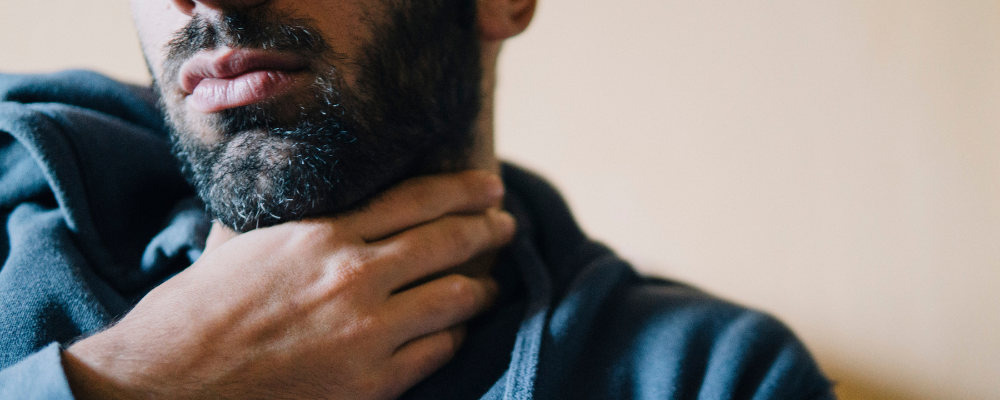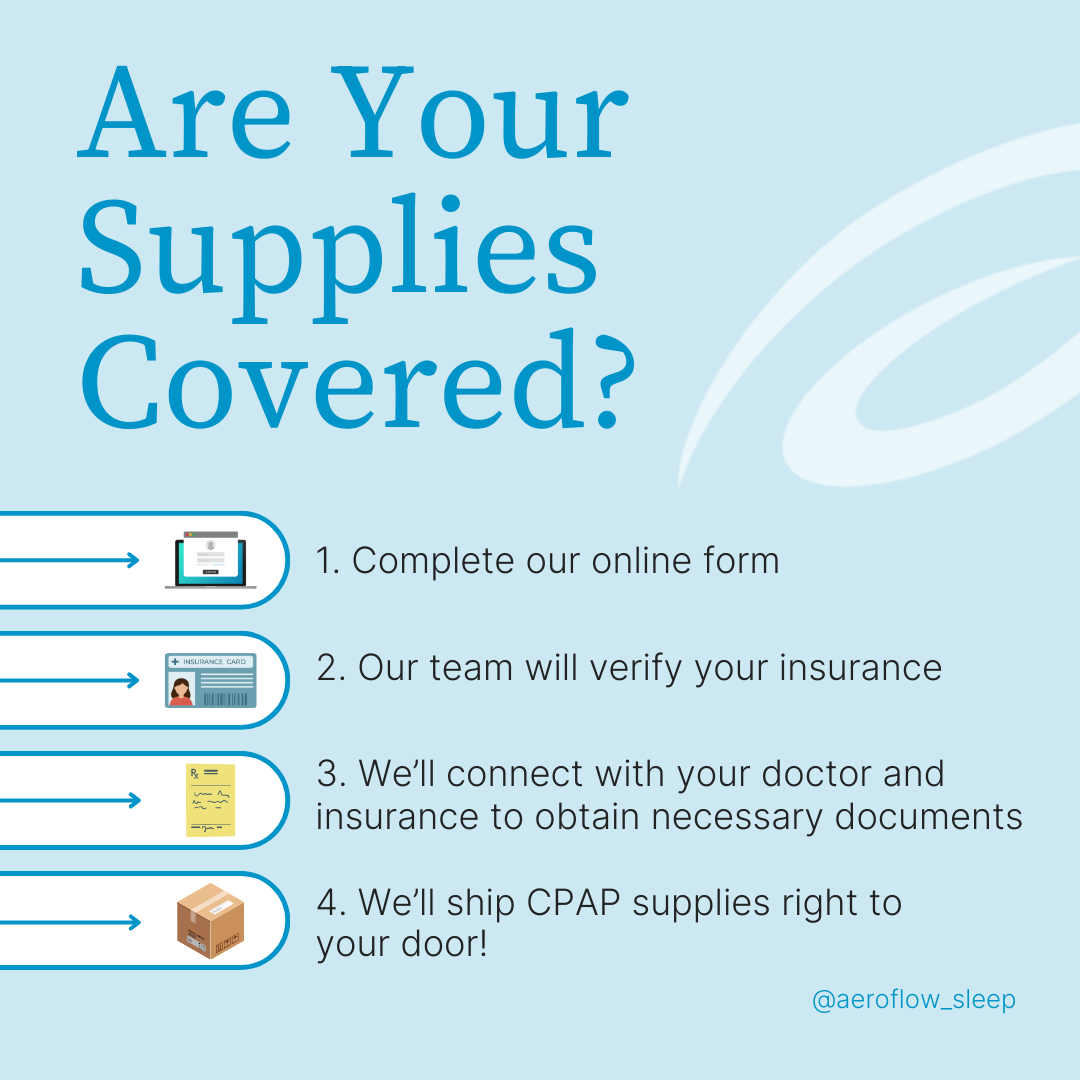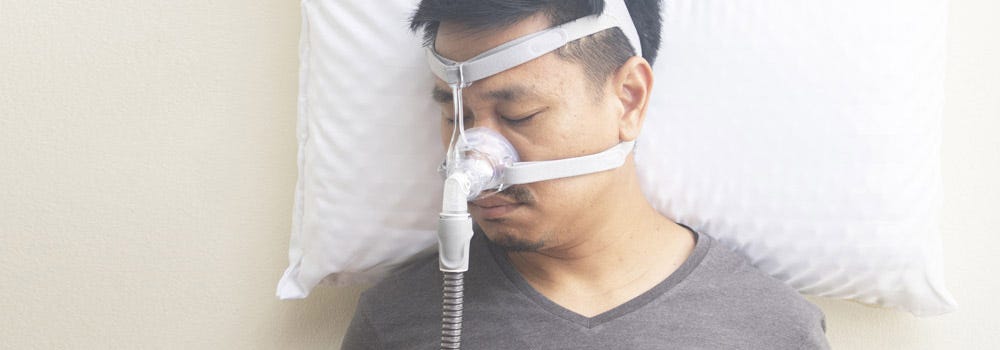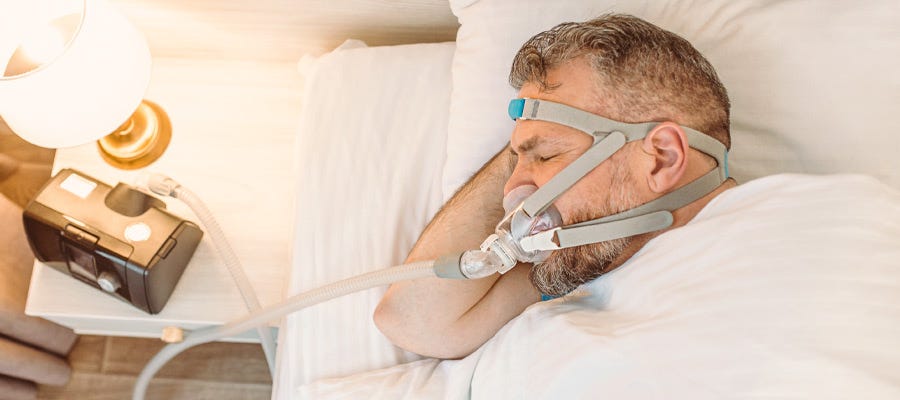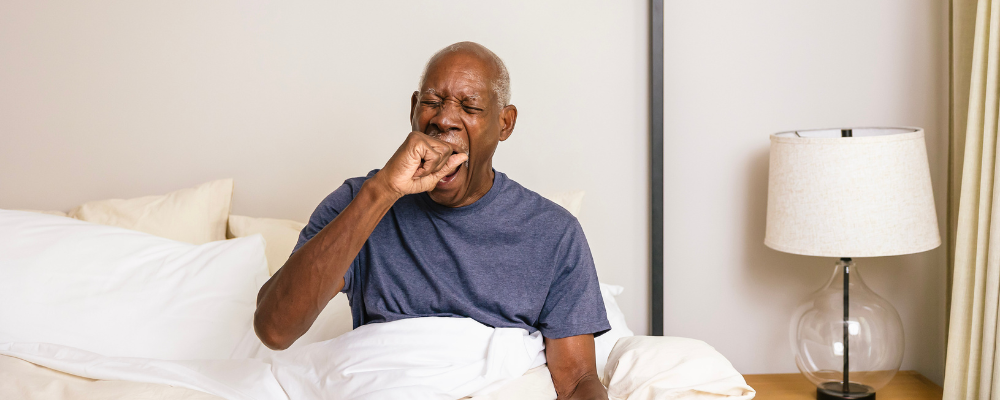With germs and sickness going around, it can be difficult to determine the cause of a sore throat. If you notice that you frequently wake up with a sore throat, it is important to let your healthcare provider know ASAP. This is especially true if you are a CPAP user.
Many new CPAP users experience a sore throat as a common side effect of treatment. However, just because it’s common doesn’t mean you can’t fix it! In fact, it is one of the easiest side effects to resolve. To help you feel and sleep better, we’re sharing why you may be experiencing a sore throat with your CPAP and how to effectively fix it.
Can Sleep Apnea Cause A Sore Throat?
If you have untreated obstructive sleep apnea (or OSA), a common symptom is frequently waking up with a sore throat.
When you have OSA, you have a blockage in your upper airway. This blockage causes your body to stop breathing while sleeping for a given period of time. In an attempt to maintain airflow, this can lead to snoring, as your upper airway’s muscles or tissues collapse and vibrate. The strain on the upper airway is one reason why you may experience a sore throat. Additionally, if the blockage is occurring in nasally, this may also force the body to breathe through the mouth, which can lead to—not only a sore throat but also—dry mouth, bad breath, and irritated nasal passages.
How Do You Get Rid Of A Sore Throat From OSA?
If you are experiencing a sore throat from untreated obstructive sleep apnea, most sleep health professionals agree that CPAP therapy is the most effective way to treat sleep apnea, and that it can potentially reduce the occurrence of a sore throat. CPAP, or continuous positive airway pressure, is a treatment option that utilizes pressurized air to keep your airways open while sleeping.
But couldn't the air from CPAP being forced into your mouth and nose lead to sore throats too?
Can CPAP Cause A Sore Throat?
Yes, the CPAP treatment itself may cause a sore throat for some. There are a few reasons why this may be occurring, but don’t worry;l it is easy to resolve this! The toughest part is figuring out why you are experiencing a sore throat while using your CPAP. Here are the most common reasons:
1. Your CPAP Mask Has An Air Leak
If your mask is leaking air, you may notice air blowing into your eyes, a hissing noise, skin irritation, and—you guessed it—a sore throat. Mask leaks reduce the effectiveness of your CPAP therapy, so it is important to let your doctor or dedicated Aeroflow Sleep Specialist know as soon as possible.
2. The Air Is Too Dry Or Too Cold
If your CPAP is blowing cold or dry air, it can lead to a plethora of uncomfortable symptoms; like nasal congestion, a runny nose, and sore or dry throat. Fortunately, your sleep doctor can help you find a humidifier to take care of this. Heated humidifiers and even heated tubing exist to mitiage this, and they may be covered up to 100% through insurance when you order from Aeroflow Sleep. But we're getting ahead of ourselves...
3. Your Pressure Setting Needs Adjusting
If your pressure is set too high, you may experience bloating, gas, difficulty exhaling, dry mouth, and a sore throat. Never adjust your CPAP pressure on your own. Instead, reach out to your doctor or Aeroflow Sleep Specialist for proper assistance.
4. You Have Chronic Sinus Infections
With regular CPAP use, cleaning and sanitizing are critical. If you do not clean your CPAP supplies, bacteria and germs will build up on your equipment and lead to frequent colds or sinus infections.
If you are experiencing one or more of these issues, do not hesitate to reach out for help. You can also try our 6 effective solutions to relieve your CPAP sore throat...
How Can I Prevent A Sore Throat While Using A CPAP Machine?
Aeroflow Sleep has found these are the best ways to prevent a sore throat as a CPAP user:
1. Ensure Your Mask Fits Correctly
To prevent mask leaks, it is important that your mask fits properly. With so many different mask options out there—full face masks, nasal pillow masks, and nasal masks, it can be difficult to determine the best type of mask by yourself. If you feel that your mask is too small or too large or simply uncomfortable, reach out to your Aeroflow Sleep Specialist for assistance today.
2. Opt For A Machine That Has A Humidifier
Remember we mentioned humidifiers earlier? To combat dryness, it is best to use a CPAP that uses a water chamber and humidification. CPAP humidifiers help moisten the air as it enters into the upper airway, and they are essential for individuals who live in cold or dry climates and/or use high pressure settings. Not sure if your machine has a humidification or how to adjust your CPAP’s humidifier settings? Contact us for help.
3. Ask About Heated Tubing
Heated tubing is the other great accessory we recommended for cold, dry climates. According to a recent article shared by VeryWell Health, when used alongside a heated humidifier, heated tubing can significantly improve temperature, humidity, and comfort for CPAP users with cold or dry bedrooms. ResMed ClimateLine Heated Tubing is their pick and ours, too!
4. Ask Your Doctor About Your Pressure Settings
You may notice some repetition with this one, but it's worth repeating. If you believe your CPAP pressure needs to be adjusted, talk to your doctor or Aeroflow Sleep Specialist right away. Never adjust pressure settings on your own, as incorrect adjustments could lead to ineffective treatment.
5. Try A Chin Strap
If you use a nasal or nasal pillow mask but notice that you are breathing through your mouth, a chin strap may be a good option for you. Rather than switching masks, a chin strap will not only reduce dry mouth and sore throat symptoms, "Using a chin strap in addition to PAP therapy increases overall adherence,” claims a study in the Journal of Clinical Sleep Medicine.
Despite this, it is important to note that a chin strap is not an option for CPAP users who use full face masks and/or users who cannot breathe through their noses. Furthermore, Dr. Carleara Weiss also shares, “Additionally, do not attempt to use mouth tape if you still breathe through your mouth while sleeping.”
6. Replace Your CPAP Supplies
While regular cleaning is critical to successful CPAP therapy, it is important to replace your supplies regularly, too. Similar to your toothbrush, each of your CPAP supplies have their own recommended timeline for when they need freshening up. Not sure when or how to replace your supplies? Check out our helpful replacement guide.
Where Can I Get New CPAP Supplies Through Insurance?
If you or your loved one have sleep apnea, Aeroflow Sleep can help you order new PAP supplies through insurance. Check your eligibility today, because excellent support and better sleep awaits...without sore throats!
References
Peters, Brandon. “Climate Line Heated Tubing For CPAP Machines.” Edited by Sanja Jelic, Verywell Health, Verywell Health, 27 May 2022, www.verywellhealth.com/what-is-climate-line-heated-tubing-for-cpap-machines-3015026.
Knowles, Shelley R et al. “Effect of addition of chin strap on PAP compliance, nightly duration of use, and other factors.” Journal of clinical sleep medicine : JCSM : official publication of the American Academy of Sleep Medicine vol. 10,4 377-83. 15 Apr. 2014, doi:10.5664/jcsm.3608


